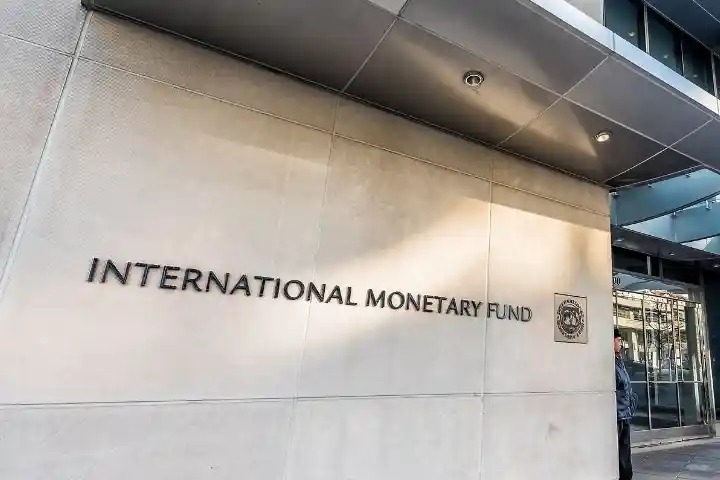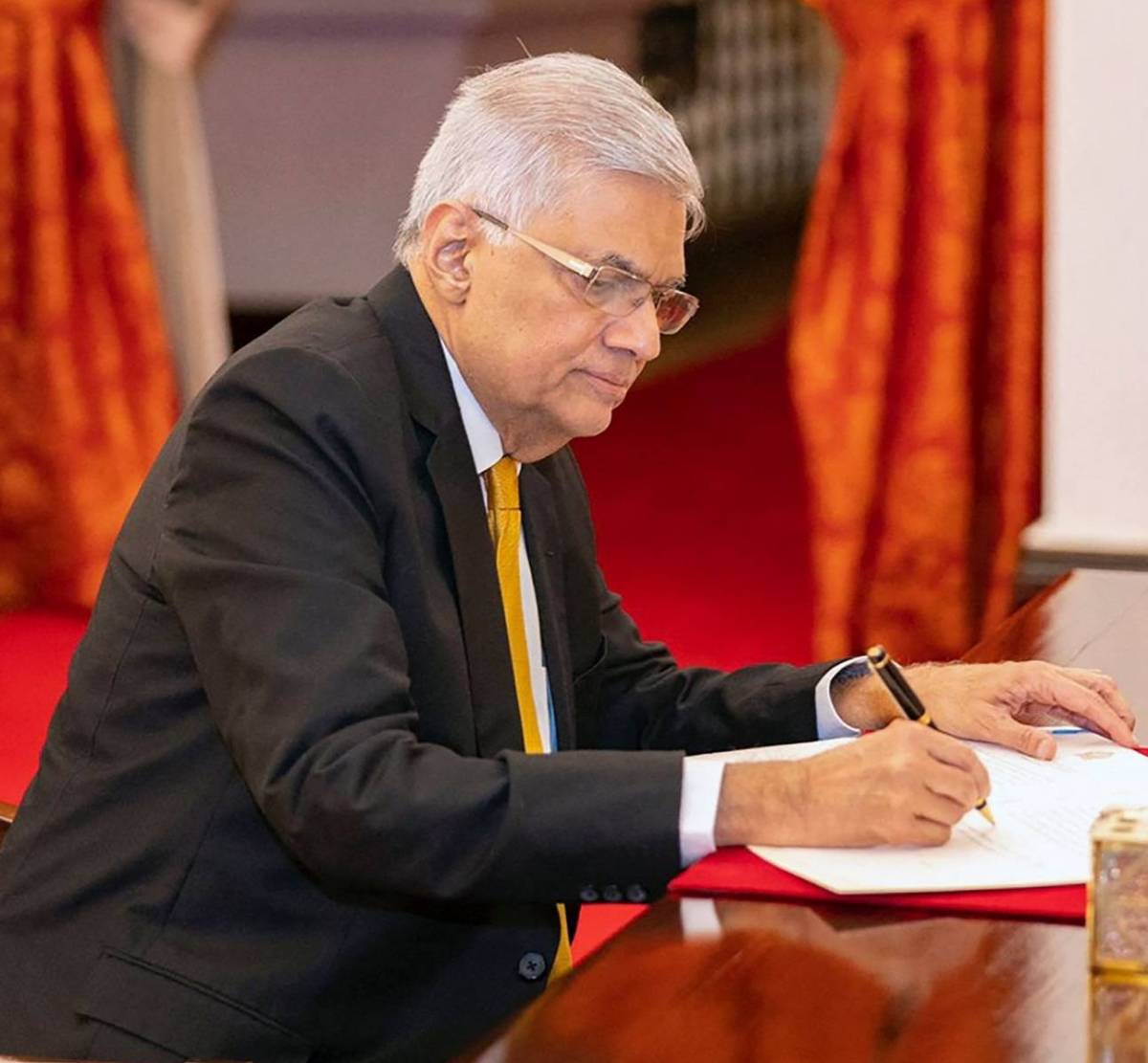The IMF bailout will undoubtedly inject Sri Lanka’s economy a lifeline, but the government must follow the IMF’s guidelines, which could be one of the hardest tasks for this administration or any other in the years to come. …reports Asian Lite News
After a protracted battle by India, the United States and Japan to get China to agree to restructure its massive loan of USD 7 bn to Sri Lanka, the International Monetary Fund (IMF) approved a USD 2.286 billion bailout for Sri Lanka on March 20.
The Sri Lankan government under President Ranil Wickremesinghe endorsed on Saturday that Sri Lanka is no longer deemed bankrupt by the world, Trueceylon reported. Former president Gotabaya Rajapaksa, who was deposed after one and a half years in power under the Sri Lanka Podujana Peramuna Party, was replaced by Wickremesinghe, who holds only one parliamentary seat. He was elected by the members of parliament and took office in June 2022.
As foreign exchange reserves dwindled, shortages of essential commodities emerged resulting in mass protests in early 2022. Reserves eventually ran out, compelling the country to declare a unilateral moratorium on selected external debt service payments until the debt was restructured and commenced an IMF-supported economic reform programme to recover from the unprecedented crisis, Trueceylon reported.
In the meantime, Gotabaya was accused of poor leadership, defaulted the international payments, and further harming the nation’s economy by outlawing chemical fertilizers and continuing to print money, all of which were aided at the time by then-Cemtral Bank of Sri Lanka (CBSL) Governor Nivard Cabraal, Trueceylon reported.
The roller coaster in getting this fund processed for Sri Lanka was immense with protests on one side over the skyrocketing cost of living as well as the opposition political parties having mounting curiosity about how the IMF would react to the situation.
But today, the IMF Board said they have approved a 48-month extended arrangement under the Extended Fund Facility (EFF) of Special Drawing Rights (SDR) to support Sri Lanka’s economic policies and reforms.
The approval was made possible after Sri Lanka received IMF-compatible financing assurances from its official creditors, including Paris Club members, Japan, India, and China. The four-year program supported by the EFF is expected to restore macroeconomic stability and debt sustainability while protecting vulnerable groups and safeguarding Sri Lanka’s financial system was reached on 1st September 2022. The program is expected to provide much-needed policy space to drive the economy out of the unprecedented challenges and instil confidence amongst all the stakeholders, Trueceylon reported.

The IMF bailout will undoubtedly inject Sri Lanka’s economy a lifeline, but the government must follow the IMF’s guidelines, which could be one of the hardest tasks for this administration or any other in the years to come. It has already been said by Moody’s Analysts that Sri Lanka’s IMF bailout is not a miracle cure. India has already committed to providing 4 billion USD in financial assistance in 2022, Trueceylon reported.
India said that as a member of the IMF, they had played an important role in pushing for the bailout while the US Ambassador to Sri Lanka Julie Chung said her government welcomes the approval of Sri Lanka’s IMF package and its great news and an important step on the road toward economic recovery. “The government of SL will need to continue reforms and conclude debt restructuring agreements to ensure the program – and the economy – stay on track. She added, structural and lasting reforms that address good governance and transparency are critical to ensure all citizens of Sri Lanka can prosper.
Further, the European Union office in Colombo tweeted welcoming the IMF executive board’s approval and thanked the creditors including the EU Member States working together to help Sri Lankans, Trueceylon reported.
In a special statement following the approval of the extended credit facility by the Executive Board of IMF, President Wickremesinghe said the loan facility serves as an assurance from the international community that Sri Lanka has the capacity to restructure its debt and resume normal transactions. He took to office in July 2022.
The government said it is working to gradually lift import restrictions on essential goods, medicines, and tourism-related goods, as the foreign exchange situation improves following the IMF approval granted. He expressed gratitude to all countries that supported the IMF agreement and assured to the table in the Parliament on March 22.
The delay was primarily brought on by China’s silence regarding its debt restructuring until recently, which is believed it would impact on China’s capacity to secure development projects that could be financed by loans. Concerned about some of Sri Lanka’s unsuccessful projects, which were implemented in the midst of the nation’s mounting debts, political unrest, and outdated reforms for governance, the IMF emphasized how crucial it is that these are in place. The IMF board directors stressed on a more comprehensive anti-corruption reform agenda for Sri Lanka as they were aware of the level of corruption by authorities that also led to the financial crisis.
To secure the eagerly anticipated IMF, the CBSL was required to increase the country’s policy interest rates beginning in March. The CBSL responded in a tweet to the IMF’s approval of the fund, stating that the IMF scheme can put Sri Lanka’s debt on a sustainable path and that investing in human and economic development is crucial for the country to emerge from its crisis and secure long-term growth.
Following the IMF bailout, Sajith Premadasa, the leader of the opposition, tweeted that the IMF’s assistance to Sri Lanka was welcome and necessary. It should now be combined with a strategy to lessen corruption, aid the underprivileged, and spur economic growth. The key ingredients for success will be governance reform, listening to the voice of the people, and having a global perspective, he tweeted.
Dr Harsha de Silva, an economist and member of the opposition SJP Party, tweeted that he was “relieved” that the bailout had been approved and thanked President Ranil Wickremesinghe for his commitment to getting the job done.
“Despite our political differences”, he appreciated “the professionalism of the Government and the CBSL in the process must be commended”. He continued, “Our people would not have suffered in this way if the previous members (lot) had done this in 2020.
He added, “We could have exited with a lot less suffering. In the end, we were bankrupted by their conceit and greed. Restructuring debt will be challenging.” He stressed the importance of reform and added that the only long-term solution is to tear down borders and forge connections with other countries, Trueceylon reported.
The IMF board, along with local and international economic experts, will be keeping a close eye on the CBSL and the government to see what the corrupt, debt-ridden island would do with an IMF bailout, Trueceylon reported. (ANI)

Leave a Reply